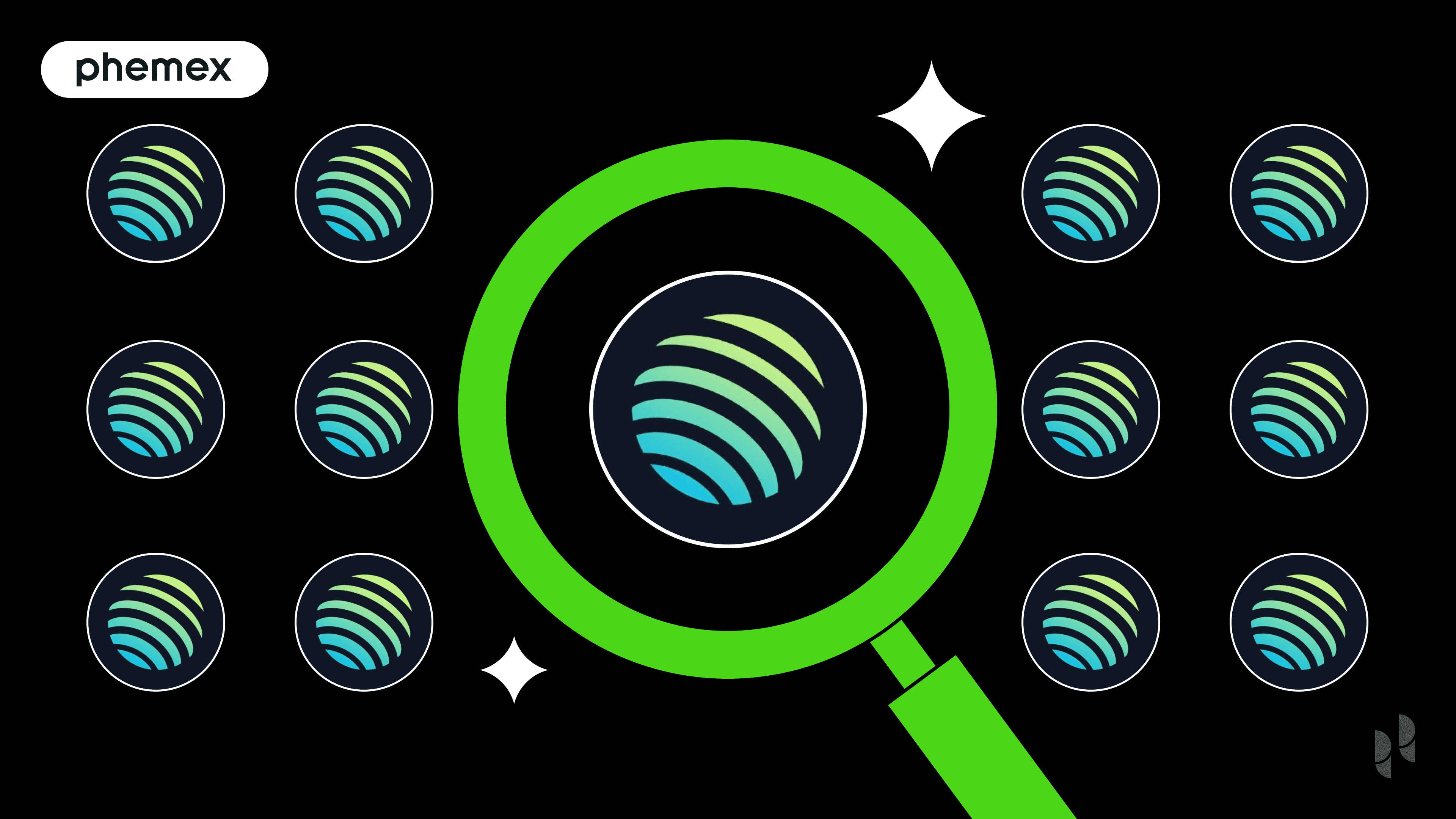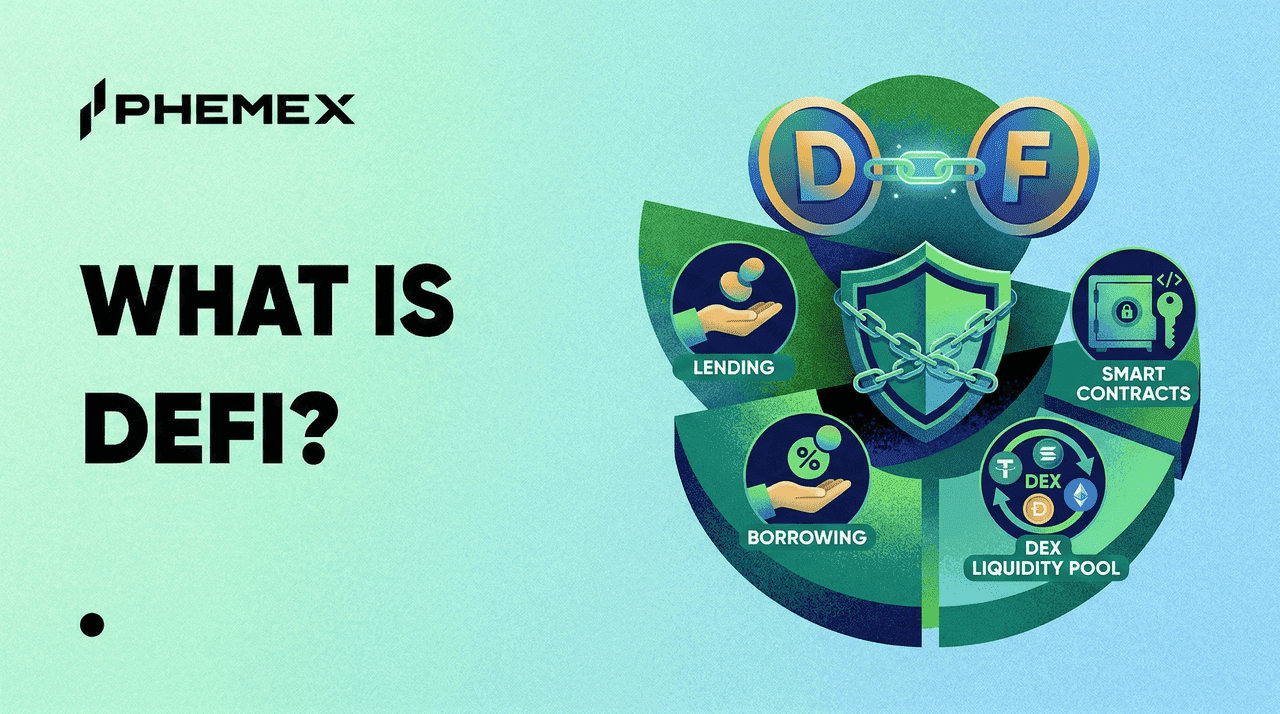Summary Box (Quick Facts)
-
Ticker Symbol: JUP
-
Chain: Solana
-
Contract Address: JUPyiwrYJFskUPiHa7hkeR8VUtAeFoSYbKedZNsDvCN
-
Circulating Supply: 1.35 billion
-
Total Supply: 10 billion
-
Primary Use Case: Governance, Launchpad Access
-
Current Market Cap: ~$462 million (Note: This value fluctuates)
What Is Jupiter (JUP)? The Heart of Solana's DeFi Ecosystem
In the fast-paced and often fragmented world of decentralized finance (DeFi), traders constantly face challenges like price slippage, thin liquidity, and finding the best price for a token swap. On a bustling blockchain like Solana, where dozens of decentralized exchanges (DEXs) compete for volume, this problem is magnified. This is where Jupiter emerges not just as a solution, but as a foundational pillar of the entire ecosystem.
So, what is Jupiter? Explained simply, Jupiter is a highly advanced liquidity aggregator built on the Solana blockchain. Think of it like a smart financial search engine. Instead of you having to manually check prices on multiple DEXs like Orca, Raydium, or Serum, Jupiter automatically scans all available liquidity sources and intelligently routes your trade to ensure you get the most tokens back for your swap, all in a single, seamless transaction. This process minimizes slippage—the difference between the expected price of a trade and the price at which it is executed—and saves users time and money.
However, Jupiter has evolved far beyond a simple swap tool. It is now a comprehensive DeFi suite designed to cater to every type of trader. Its powerful offerings include:
-
Limit Orders: This feature allows traders to set a specific price at which they want to buy or sell a token, automating their strategy without needing to monitor the market 24/7.
-
Dollar-Cost Averaging (DCA): A powerful tool for long-term investors, DCA enables users to automatically buy or sell a specific amount of a crypto asset over a set period. This strategy helps mitigate the impact of volatility by averaging out the purchase price over time.
-
Bridge Comparator: In an increasingly multi-chain world, moving assets between blockchains can be complex and risky. Jupiter’s Bridge Comparator simplifies this by finding the most efficient and cost-effective routes for transferring assets to and from Solana.
-
Perpetuals Trading: For advanced traders, Jupiter offers a decentralized perpetuals market, allowing users to trade futures contracts with leverage, speculating on the future price of assets without holding them directly.
Further cementing its role in bridging DeFi with real-world applications, Jupiter has announced a partnership with Sanctum to introduce a SOL-based debit card. This ambitious initiative aims to provide users with a tangible way to spend their crypto assets in everyday life, marking a significant step towards mainstream adoption. The JUP token is the key that unlocks community governance over this entire powerful ecosystem.
How Many JUP Are There? A Deep Dive into Tokenomics
A project's tokenomics—the science of its token supply, allocation, and distribution—is crucial for understanding its long-term potential. Jupiter's tokenomics were meticulously designed to foster decentralization and reward its community.
The max total supply of JUP is capped at 10 billion tokens, ensuring it is not an inflationary asset. This supply is divided perfectly down the middle into two main wallets:
-
Team Wallet (50% - 5 billion JUP): This portion is reserved for the current and future Jupiter team members, strategic reserves, and providing liquidity. This allocation is subject to a vesting schedule, which began in January 2024. The tokens unlock over a period of two years, which is a standard practice to ensure the team remains committed to the project's long-term success and to prevent premature sell-offs that could harm the token's value.
-
Community Wallet (50% - 5 billion JUP): This half is dedicated entirely to the community. Its distribution is planned through a series of airdrops, grants for contributors, and community initiatives to be decided by the Jupiter DAO (Decentralized Autonomous Organization).
The initial circulating supply of 1.35 billion JUP was introduced to the market through a massive, retroactive airdrop on January 31, 2024. This airdrop was a landmark event in the Solana ecosystem, rewarding nearly one million early and active users of the Jupiter platform. This strategy was not just about giving away free tokens; it was a deliberate move to place governance power directly into the hands of the most loyal users from day one, creating a robust and engaged community of stakeholders.
What Does JUP Do? The Power of Governance and the LFG Launchpad
The primary JUP use case is far more significant than a simple utility token; it represents a share of voting power in one of Solana's most critical infrastructures. Holding JUP grants you the right to participate in the Jupiter DAO, where the community collectively makes decisions on the protocol's future.
1. Decentralized Governance:
JUP holders can propose and vote on crucial aspects of the platform, including:
-
The LFG Launchpad: Approving which new projects get to launch on Jupiter’s highly anticipated launchpad.
-
Protocol Fees: Deciding on the fee structure for the swap engine, limit orders, and perpetuals trading.
-
Ecosystem Grants: Allocating funds from the community treasury to support developers building new tools and integrations on top of Jupiter.
-
Liquidity and Emission Strategies: Guiding the incentive programs for liquidity providers on the platform.
This governance model is vital. It means the platform will evolve in a way that benefits its users, not just its creators, ensuring long-term alignment and sustainability.
2. The Jupiter LFG Launchpad:
Perhaps the most exciting utility for the JUP token is its role in the Jupiter LFG Launchpad. This platform is designed to introduce promising new Solana-based projects to the community. The launchpad aims to be a more equitable and decentralized alternative to traditional crypto launchpads. JUP holders play a direct role in this process, from voting on which projects get to launch to potentially gaining early access to token sales. This creates a powerful incentive to hold and stake JUP, as it becomes a key to discovering and investing in the next generation of Solana projects.
JUP vs. Uniswap: A Tale of Two DeFi Giants
While both are leaders in the decentralized exchange space, comparing Jupiter to Uniswap highlights two different philosophies and technological approaches to achieving DeFi excellence. Jupiter is a premier liquidity aggregator on Solana, whereas Uniswap is the leading Automated Market Maker (AMM) on Ethereum.
| Feature | Jupiter (JUP) | Uniswap (UNI) |
| Underlying Blockchain | Solana: Built on a high-throughput blockchain that uses Proof-of-History (PoH) for immense speed and scalability. | Primarily Ethereum: Operates on the most established and decentralized smart contract platform but also deploys on L2s like Arbitrum, Polygon. |
| Core Function | Liquidity Aggregator: Functions like a smart router, finding the most efficient trading path across dozens of separate Solana DEXs. | Automated Market Maker (AMM): Is a self-contained DEX with its own liquidity pools where users trade directly against smart contracts. |
| Transaction Speed | Extremely High: Transactions are often confirmed in under two seconds, providing a user experience that rivals centralized exchanges. | Slower on L1: Can take several minutes during congestion on Ethereum's mainnet. It is significantly faster on its Layer 2 deployments. |
| Transaction Fees | Very Low: Typically costs a fraction of a cent per transaction, making it ideal for high-frequency trading and small-scale users. | High on L1: Fees on Ethereum can range from $10 to over $100 during peak times, making it costly. Fees are much lower on Layer 2s. |
| Token Utility | Governance and Launchpad Access: JUP is used to govern the entire Jupiter ecosystem and participate in the LFG Launchpad. | Governance: UNI's primary use is governing the Uniswap protocol, its treasury, and the "fee switch" which could direct fees to holders. |
| Advanced Features | Integrated Suite: Offers a built-in, user-friendly suite of tools like Limit Orders, DCA, Perpetuals, and a Bridge Comparator. | Protocol-Level Innovation: Pioneered concepts like Concentrated Liquidity (V3) and is now exploring aggregation with UniswapX. |
In essence: Jupiter's innovation lies in its masterful aggregation and user experience layer on a low-cost chain, making DeFi powerful yet simple. Uniswap's innovation lies in its foundational AMM design and capital efficiency, setting the standard for on-chain liquidity provisioning.
The Technology Behind Jupiter: Speed, Security, and Smart Routing
Jupiter's technological prowess is a combination of Solana's powerful architecture and its own sophisticated off-chain computing.
-
Smart Routing Engine: This is Jupiter's secret sauce. When a user requests a swap, Jupiter's engine doesn't just look for the best single DEX; it calculates multi-hop routes. This means it can, for example, swap SOL for USDC on Raydium and then immediately swap that USDC for BONK on Orca, all in one atomic transaction, if that complex path results in a better final price for the user. This engine processes an immense amount of data from all over Solana to find these optimal paths in milliseconds.
-
Solana's Proof-of-History (PoH): The foundation of Jupiter's speed is Solana. PoH is a cryptographic clock that timestamps transactions before they are bundled into blocks. This allows validators to process transactions in parallel, rather than sequentially, leading to massive throughput and sub-second block times. This is what enables Jupiter to offer a near-instantaneous trading experience.
-
Security and Audits: As a central piece of Solana's infrastructure, Jupiter prioritizes security. The platform's smart contracts are regularly audited by leading blockchain security firms. Furthermore, by being an aggregator, it reduces the systemic risk for users. Even if one of the DEXs it routes through has an issue, Jupiter's engine can dynamically reroute liquidity, and the user's funds are only ever exposed during the brief moment of the transaction itself.
Team & Origins: A Community-First Approach
Jupiter was founded by a pseudonymous team led by a developer known as "meow". The choice to remain pseudonymous is common in the crypto world, emphasizing a focus on the project's code and community rather than on individual personalities.
Long before the JUP token was ever conceived, the Jupiter team was diligently building and refining its product. They launched their aggregator in 2021 and quickly became an indispensable tool for Solana traders. Their growth was organic, driven by word-of-mouth and a reputation for providing the best prices and a reliable user experience. This history is important because it shows the project's commitment to building genuine utility first. The launch of the JUP token was not the beginning of the project but rather the natural next step in its evolution towards full decentralization.
Key News & Events: The Jupiter Timeline
-
October 2021: Jupiter's swap aggregator mainnet launches on Solana, quickly gaining traction.
-
January 31, 2024: The landmark JUP airdrop takes place, distributing 1 billion tokens to nearly a million eligible wallets and marking the official launch of the Jupiter DAO. The event drives massive activity on the Solana network.
-
March 2024: The LFG Launchpad beta is initiated, with JUP holders voting on the first projects to be launched, solidifying the token's governance utility.
-
Ongoing: Jupiter continues to announce new partnerships and integrations, such as the SOL-based debit card with Sanctum, demonstrating its forward-thinking approach to expanding the use cases for DeFi.
Is JUP a Good Investment? A Balanced Perspective
Evaluating the JUP investment potential requires a careful look at both its strengths and its risks.
The Bull Case for JUP:
-
A Bet on Solana's Growth: Jupiter is arguably the single most important application in the Solana DeFi ecosystem. As Solana grows in users, applications, and trading volume, Jupiter is a primary beneficiary. Investing in JUP can be seen as a proxy investment in the success of the entire Solana network.
-
Strong Competitive Moat: Jupiter has established itself as the dominant liquidity layer on Solana, with deep integrations and immense brand recognition. This creates a powerful network effect that is difficult for competitors to overcome.
-
Powerful Future Catalysts: The success of the LFG Launchpad could create significant demand for the JUP token. Furthermore, any future decisions by the DAO to implement fee-sharing, where a portion of the protocol's revenue is distributed to JUP stakers, could dramatically increase the token's appeal.
The Bear Case for JUP:
-
Dependence on Solana: Jupiter's biggest strength is also its greatest risk. If the Solana network were to face persistent technical issues, security breaches, or lose market share to other blockchains, Jupiter's usage and value would decline accordingly.
-
Regulatory Uncertainty: The entire DeFi space operates in a gray area of regulation. Future government actions against decentralized exchanges or specific tokens could negatively impact JUP.
-
Governance-Only Value (For Now): Currently, the JUP token's value is primarily derived from its governance rights. Until a direct economic link (like fee-sharing) is established, its price may be more speculative compared to tokens that already generate yield for their holders.
Conclusion: JUP is a high-potential but also high-risk asset. Its future is intrinsically tied to the growth and stability of the Solana ecosystem. It represents a share of control over a vital piece of DeFi infrastructure.
Disclaimer: This content is for informational purposes only and does not constitute financial advice. Cryptocurrency trading involves significant risks; only invest what you can afford to lose.
How to Buy JUP on Phemex: A Step-by-Step Guide
Getting started with Jupiter (JUP) on Phemex is a simple and secure process. The platform is designed to cater to both beginners looking for a simple purchase and advanced traders wanting to engage with futures markets. You can easily add JUP to your portfolio via spot trading or speculate on its price movements with JUP perpetual contracts.
For a complete, step-by-step walkthrough that covers everything from creating your account to executing your first trade, please refer to our comprehensive guide: How to Buy Jupiter (JUP) on Phemex.
Frequently Asked Questions (FAQs)
What is the difference between Jupiter the aggregator and a DEX like Orca?
A DEX like Orca operates its own liquidity pools where users trade. Jupiter is an aggregator that scans the liquidity pools of Orca, Raydium, and many other DEXs simultaneously to find the user the absolute best price, often splitting a trade across multiple DEXs to achieve this.
How does the Jupiter LFG Launchpad work?
The LFG Launchpad is a platform for new Solana projects to launch their tokens. The JUP DAO (community of JUP holders) votes to approve which projects can launch. This provides a community-vetted launchpad experience for both projects and investors.
Is the JUP token inflationary or deflationary?
The JUP token has a fixed maximum supply of 10 billion, so it is not inflationary. No new JUP can be minted beyond this cap.
Can I earn yield with my JUP tokens?
Currently, the primary utility of JUP is governance. While direct staking for yield is not yet implemented, the DAO could vote to introduce such a mechanism in the future, where stakers might earn a portion of the protocol's trading fees.
What was the eligibility for the JUP airdrop?
Eligibility was based on a snapshot of historical usage of the Jupiter platform. It rewarded wallets that had interacted with the protocol before a specific date, with allocations tiered based on trading volume and frequency to reward the most consistent users.







